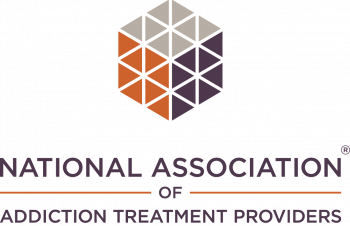Prescription painkillers are often an unintentional gateway to opioid addiction. Powerful synthetic opiates like fentanyl have only made the opioid epidemic worse. In recent years, the introduction of these highly potent opiates has resulted in a spike in opioid-related overdoses and deaths. If you or someone you love is addicted to painkillers or other opiates, we encourage you to reach out to the experts at TruHealing Gaithersburg at (833) 625-0398 for information about how to seek treatment. Our outpatient treatment center offers personalized treatment plans, consistent support, and resources like community housing to help those who are struggling with addiction get back on their feet.
How to Recognize the Signs of Addiction
Painkiller addiction is more common than you might think. Many individuals receive a prescription for a potent painkiller after a medical procedure or to help relieve chronic pain. However, these painkillers can be addictive, and even taking them as your doctor prescribes can lead to dependency. If you find that you are using painkillers in ways other than as prescribed, this can be a sign that you are struggling with a painkiller addiction.
Early intervention can help prevent a psychological or physical dependency from developing into a more serious addiction. That’s why early intervention is always the best-case scenario. Experiencing moderate to severe symptoms of withdrawal or strong cravings are signs of a painkiller addiction.
If someone has developed a painkiller addiction, they may show some or all of the following common signs:
- Changes in mood
- Sleep dysfunction
- Problematic decisions
- Negative behaviors
- Making excuses
- Lack of interest in social activities
Other common red flags associated with painkiller abuse can include:
- Feelings of agitation, anxiety, restlessness
- GI problems
- Excessive sweating
- Shaking or abrupt physical movements
Commonly Abused Painkillers
Painkillers are by no means the only prescription medication that is misused and abused. Keeping that in mind, opiate painkillers are among the most dangerous medications to abuse. Commonly abused painkillers include:
- Hydrocodone (Vicodin)
- Oxycodone (Percocet)
- Hydromorphone (Opana)
- Fentanyl
Painkillers and other prescription medications can be especially dangerous when combined. It’s not uncommon for people who abuse painkillers to also have experimented or formed a dependency on anti-anxiety medications like benzodiazepines or stimulants like amphetamines.
Painkiller Addiction Treatment and Recovery
Going through counseling plays an important role in recovering from addiction. TruHealing Gaithersburg offers a range of therapeutic options, including both traditional and holistic methods. Therapies we offer include:
- Cognitive-behavioral therapy (CBT)
- Dialectical behavior therapy (DBT)
- Trauma-focused therapy
- Family therapy
- Group therapy
Therapy can help address the root causes that lead to substance abuse. By treating the whole person, both the mind and the body, we are able to help clients develop coping mechanisms with real-world utility value. Coping strategies can help manage high-risk triggers as clients re-enter society and navigate challenges on the path to long-term sobriety.
Contact TruHealing Gaithersburg for Prescription Drug Abuse Help
Painkiller addiction is unfortunately very common. Many who struggle with painkiller addiction developed their habit by accident after surgery or trying to manage chronic pain. We do not judge the individual for their past or their choices. Instead, we focus on providing the necessary care to get better. The doctors and mental health professionals at TruHealing Gaithersburg are prepared to manage any client needs.
TruHealing Gaithersburg offers a prescription drug treatment program at our Maryland location. If you or someone you care about is struggling with addiction to painkillers, opiates, or misuse of other prescription medications, we encourage you to reach out today to get the help you deserve. Our trained representatives are standing by at (833) 625-0398 to answer any and all of your questions about our programs and services. We offer personalized treatment plans that are tailored to fit your individual needs. Don’t wait, recovery is just a phone call away.









